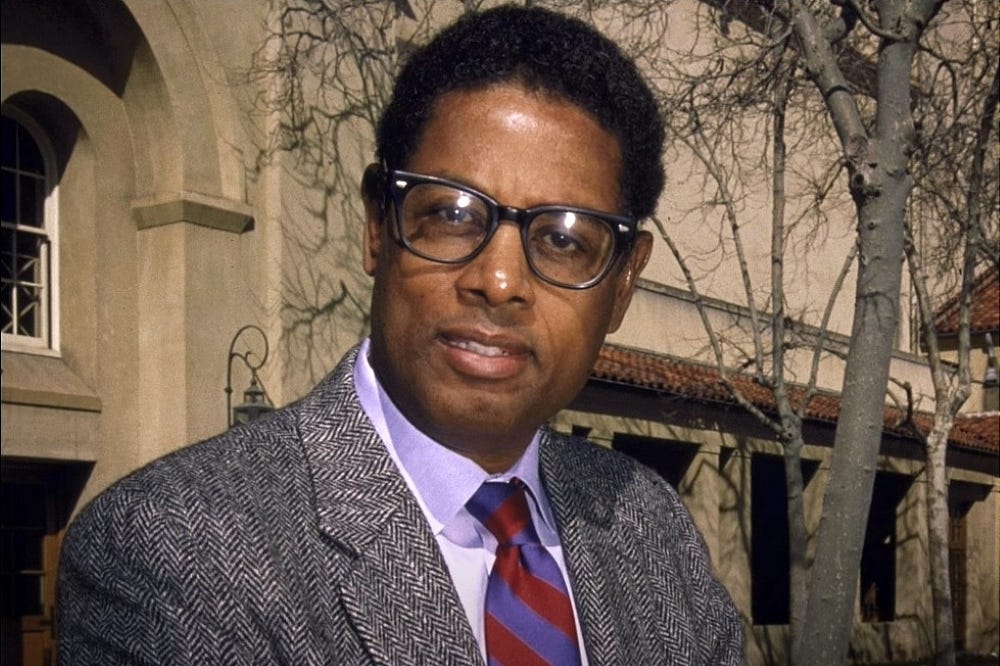Thomas Sowell’s Theory of Knowledge
Equalizing abstract academic ideas with everyday knowledge
Thomas Sowell, a prominent American conservative economist, historian, and social theorist at Stanford University’s Hoover Institute, developed a theory of knowledge emphasizing decentralized, practical understanding over centralized, abstract approaches. His perspective critiques centralized planning and highlights the value of tacit knowledge—insights rooted in local experience, culture, and traditions.
Raised in inner-city New York City and earning a Ph.D. in economics from the University of Chicago, Sowell was a Marxist early in his career but rejected it after observing the failures of centrally planned systems based on abstract pie-in-the-sky ideals.
Sowell’s theory distinguishes between two types of knowledge: articulated (explicit) knowledge, like scientific theories, and tacit knowledge, which arises from personal experience and trial-and-error learning. He critiques what he perceives as an elitist hierarchy that places academic knowledge above practical, vocational knowledge, arguing that the value of any knowledge depends on its context. Sowell contends that highly educated academics do not necessarily possess superior knowledge than ordinary people in many crucial areas. While academia often elevates articulated knowledge, he emphasizes that tacit knowledge is crucial in effective decision-making, especially in complex societies.
Drawing on Austrian-British Economics Nobel Prize-winner Friedrich Hayek’s "knowledge problem," he asserts that local decision-making, informed by lived experience, is often more effective than top-down solutions imposed by distant planners.
Sowell critiques modern social justice initiatives that rely on centralized planning and abstract academic ideas, arguing they frequently overlook the nuances of local knowledge, leading to counterproductive policies and worsening conditions, such as increased urban crime. The academics driving these movements are often separated from and even dismissive of the real-world wants and needs of the inner-city and poor rural minority populations they aim to serve.
While acknowledging the value of abstract knowledge, Sowell stresses its need to complement practical and local insights. He advocates mutual respect between theory and practice to address societal challenges, and challenges policymakers and academics to balance theoretical insights with the wisdom and practical knowledge of everyday people.



Might apply to all the folks at the UUA who have no church experience. Riley none. Betancourt little. Kron none. Etc.
I know he makes this assertion tangentially in some of his books I have read. Has Sowell written anything that focuses on this?